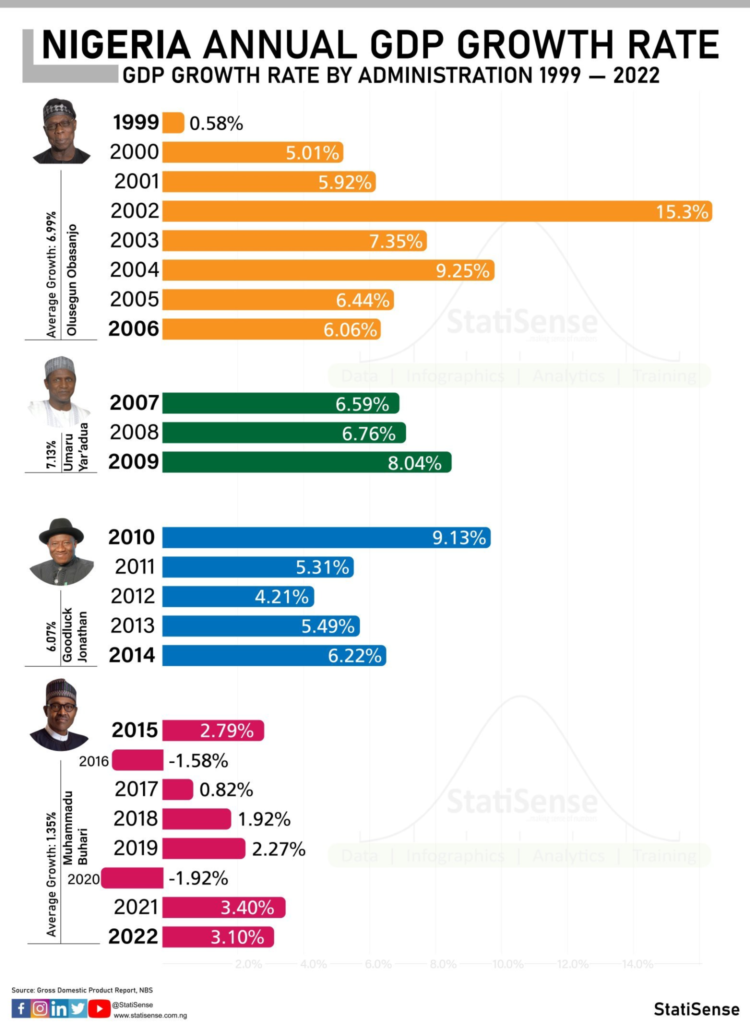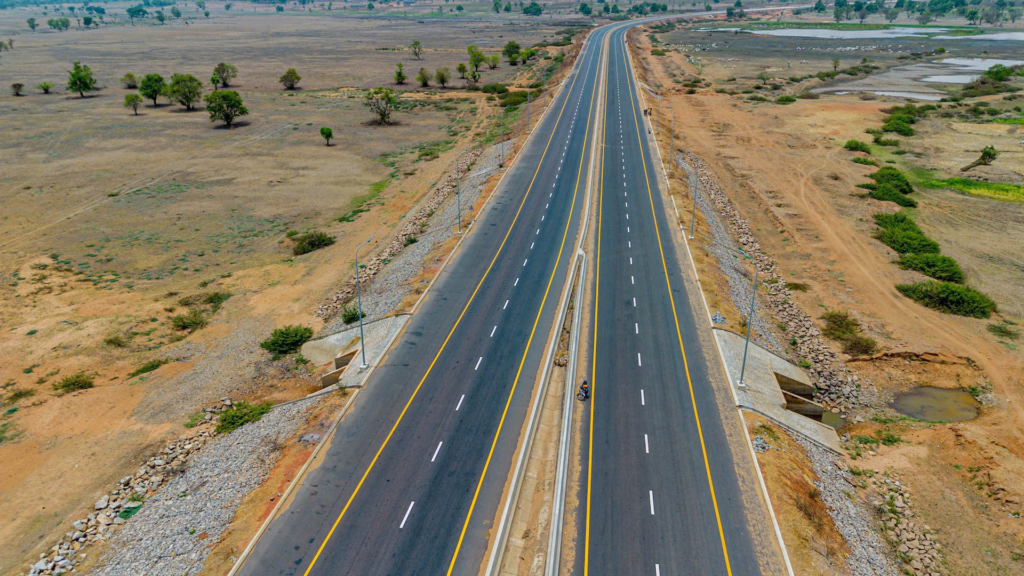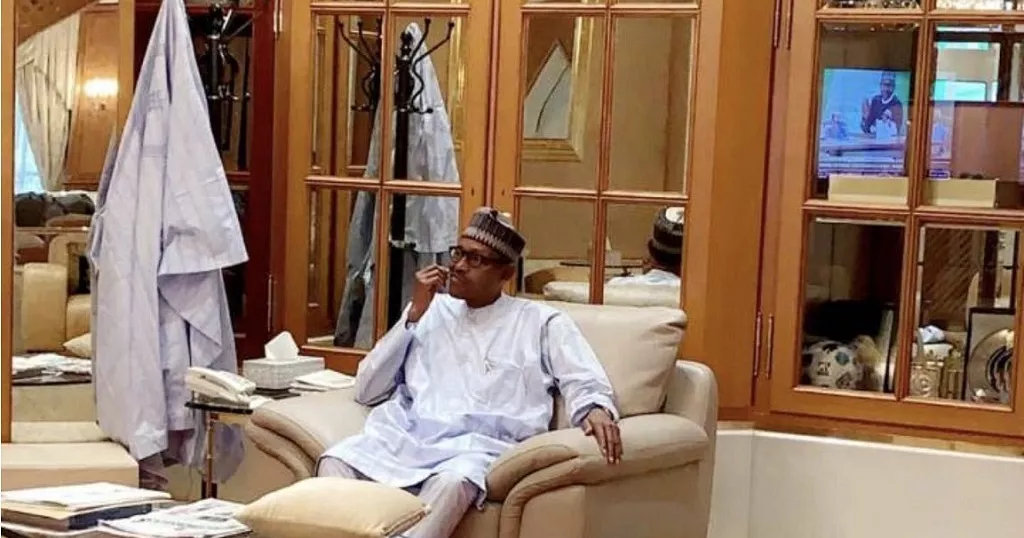As the curtain closes on President Buhari’s eight years in power, Nigerians are left to reflect upon a legacy marked by regrettably missed opportunities. Ebenezer Obadare, a political expert, describes Buhari’s time in office this way:
“That Buhari managed to turn such wild enthusiasm about his candidacy into grave disappointment, going from a regime of which many, rightly or not, had high hopes, to one that most can’t wait to see the back of, ranks among the most remarkable instances of reputational collapse in the whole of Nigerian political history.
It was clear within the first few months—the initial struggle to put together a cabinet being particularly telling—that Buhari, for all his desperation to take power, had not done his homework and was ill-prepared for the demands of the office.”
Riding on the “Sai Baba, Sai Buhari” mantra and backed by a political figure like Bola Ahmed Tinubu, there were high expectations that Buhari would put Nigeria on the right trajectory. However, Buhari failed to live up to expectations of his promises.

A summary of Buhari’s eight years
His ardent supporters will say he built more infrastructure than any other leader before him. They’ll point to the construction of the Second Niger Bridge, multiple railroad projects, and roads across the country.

[Loko-Oweto Bridge / Bashir Ahmed / Twitter]
They’ll also say he assented to many bills the coming administration can hopefully build upon. Some will also applaud Nigeria’s response to the COVID-19 pandemic under his watch, which the WHO ranked as the fourth-most successful globally. While Buhari can claim these achievements, the tradeoff has come at a steep cost.

His anticorruption stance initially earned him the “Mai Gaskiya” title, meaning “the honest one.” Time has, however, eroded that perception. Nothing captures this better than when he granted pardons to two ex-governors, Joshua Dariye and Jolly Nyame, who were indicted for corruption. The Economic and Financial Crimes Commission (EFCC) said they were demoralised by that action, having spent eleven years and hundreds of millions of naira prosecuting those cases.
No other president has plunged Nigeria into as much debt as he has. In his eight years in office, Buhari raised Nigeria’s debt from $7.3 billion, inherited from former President Goodluck Jonathan, to $41.8 billion—a 400% increase.
His economic policies left many scratching their heads. Take your pick from anyone between the controversial Anchor Borrowers’ Programme, TraderMoni, the naira redesign, and the shutdown of our borders. All told, 133 million Nigerians now live in multidimensional poverty. The World Bank projects that by 2025, 13 million more Nigerians will join them. Unemployment will rise to 41% this year.
Electoral reform, which Nigerians initially had high hopes about—us included—was another facade. The events of the 2023 general elections made that apparent.
Buhari has a mixed record on human capital development. Some people might say it’s terrible. Although there were capital interventions in the health and education sectors, the unending ASUU strikes and the brain drain of doctors tell you all you need to know about how that went. This follows a recurring theme in Buhari’s administration. Money is thrown at projects that either become misappropriated or poorly executed.
Due to his military credentials, many Nigerians expected him to bolster security. This turned out to be a massive letdown. While it’s true that Boko Haram has recently piped down, it’s unclear if that is entirely due to Buhari’s efforts or the internecine struggles of Islamist terrorist groups in northern Nigeria. In the South-East, the proscribed Indigenous People of Biafra, IPOB, has been a constant scourge with its enforced sit-at-home orders. The rise in banditry and kidnapping for ransom across Nigeria is alarming. A former minister described it as a “burgeoning industry
The Vanguard reports that since he assumed office in May 2015, 63,111 Nigerians have been killed under his administration. And young Nigerians will not forget the events of EndSARS, culminating in the military officers’ shooting of unarmed protesters on October 20, 2020. Till today, Buhari hasn’t told us who gave the kill order.
We could point to his nepotism as evident in his lopsided appointments, disregard for the rule of law, clampdown on the media, frequent junketing and medical tourism, and inability to unite Nigerians. Losses in several areas quickly overshadowed any gains he made in one area. Based on these, his eight years as president are best described as a net negative. This is Buhari’s legacy.
Buhari’s famous last words
Buhari was camera-shy in his early days in office and rarely addressed the media. This came with several conspiracy theories about his health, such as possessing a body double. Nigerians on Twitter will also recall that he locked his comment section for a while.
However, the latter end of his regime has seen him speak out more, surprisingly off the cuff. Buhari asked Nigerians for forgiveness in April, saying he’d accept all criticism. This represents a marked departure from the nonchalant and aloof demeanour that has become a representation of his political career. Despite his hard-guy stance, Buhari cares what we think of him and wants history to be kind to him.
But perhaps the most revealing utterance Buhari has made to date comes from his speech on May 23 at the launch of the new headquarters of the Nigerian Customs Service in Abuja. A viral portion of that speech has made it online. In the speech, he explained his reason for the controversial closure of Nigeria’s land borders.
Buhari said it was deliberate and designed to force Nigerians to grow what they eat. He genuinely thinks it was a good policy, which Nigerians “appreciated” him for eventually. He added, “I said these few things about my personal belief because I have only six more days to go. And I plan to be as far away from Abuja as possible.
Thank goodness, I come from an area far away from Abuja. I said if anybody forces me, I have a good relationship with my neighbours, Niger people will defend me.”
Nigerians are reeling in utter shock at their Commander-in-Chief.

Buhari has earned wide condemnation for his comments on various sociocultural forums. These include the MiddleBelt Forum, the Afenifere, the Pan Niger Delta Forum PANDEF, and the Northern Elders Forum.
And yet, for all the uproar, Buhari has consistently said that he’s all about himself for the last eight years. In his inaugural speech on May 29, 2015, Buhari said: “I belong to everybody, and I belong to nobody.” If only we knew and were ready.

On May 29, 2023, the president-elect, Bola Ahmed Tinubu, will give his inaugural speech. Despite misgivings about the elections, Tinubu’s speech might give insights into what to expect from his administration. Ultimately, if Buhari’s time in office has taught us anything, we should set our expectations lower.
Can you handle the hotness of Zikoko’s Hertitude? Click here to buy your ticket and find out.





